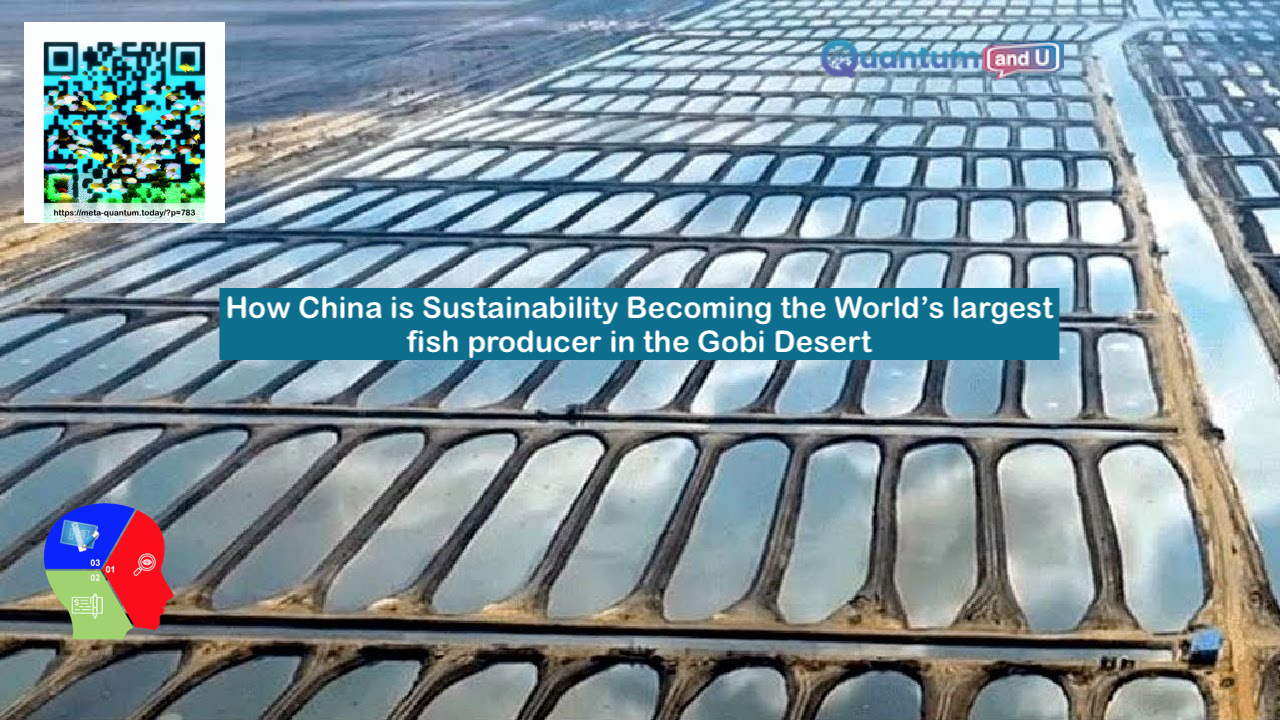
Introduction:
In this YouTube review, the host discusses China’s ambitious project of building a mega fish farm in the Gobi Desert. This project aims to revolutionize the global seafood industry by making China the world’s largest fish exporter. The video explores whether this desert oasis can be a sustainable solution or if it will have unintended consequences. With the ability to produce more fish than ever, China is poised to become the world’s largest fish exporter. Will this desert oasis be a sustainable solution. The Mega Fish Farm in the Desert in China is a massive undertaking by Modern Agriculture (Holdings) Co. Ltd, a leading player in the Chinese agriculture industry and listed on the Hong Kong Stock Exchange. This sustainable and efficient aquaculture project is set to revolutionize the fish farming industry in China. It is predicted to reduce production costs while increasing efficiency and resource utilization. The Mega Fish Farm will not only benefit Modern Agriculture (Holdings) Co. Ltd.
Related Sections:
- The Mega Fish Farm in the Desert: The video introduces the massive undertaking by Modern Agriculture Holdings, a leading player in the Chinese agriculture industry. The project has been made possible through private investments, government grants, and loans from financial institutions. It is predicted to reduce production costs, increase efficiency, and improve resource utilization in the fish farming industry.
- Advantages of the Desert Location: The unique location of the fish farm in the desert is discussed. The high temperature and low humidity of the desert create ideal conditions for fish farming. The dry desert air helps prevent disease spread, which is a common issue in traditional fish farms. Advanced technology, such as recirculating aquaculture systems, is employed to make the farm more sustainable and cost-effective.
- Impact on China’s Economy: The construction of the mega fish farm is expected to significantly impact China’s economy. The farm’s advanced technology and sustainable practices will enable it to produce large quantities of fish at a relatively low cost, making China more competitive in the global seafood market. This will increase exports and boost the country’s economy. The farm also creates jobs in the region, benefiting the local economy.
- Contribution to Food Security: China’s growing population and increasing demand for food, especially protein sources, make food security a crucial goal. The mega fish farm’s sustainable practices and advanced technology will help China achieve its food security goal by producing large amounts of fish. This will not only meet domestic demand but also contribute to increased fish exports.
- Environmental Benefits: The location of the desert and the advanced technology used in the farm help reduce the environmental impact of fish farming. Recirculating aquaculture systems recycle water and nutrients, minimizing water and feed requirements. The dry desert air and the absence of natural disasters like floods and storms further contribute to reducing the environmental footprint of the farm.
- Job Opportunities and Economic Growth: The mega fish farm project has created thousands of jobs in the region, both during the construction phase and ongoing operation. The local economy has been boosted, with businesses capitalizing on increased job opportunities. The video highlights this project as an example of sustainable development that leads to economic growth.
Conclusion:
China’s mega fish farm project in the Gobi Desert has the potential to make China the world’s largest fish producer and exporter. The sustainable practices and advanced technology employed in the farm contribute to reducing production costs, increasing efficiency, and conserving resources. While there are potential risks, such as disease outbreaks and climate change, China’s commitment to sustainable fishing practices and investment in global fisheries demonstrate its dedication to improving the health of global oceans. With China’s success, other nations are also recognizing the importance of sustainable fishing practices.
Takeaway Key Points:
- China is building a mega fish farm in the Gobi Desert to become the world’s largest fish exporter.
- The desert location provides ideal conditions for fish farming, and advanced technology makes the farm sustainable and cost-effective.
- The project will boost China’s economy, create jobs, and contribute to food security.
- The farm’s sustainable practices reduce the environmental impact of fish farming and conserve resources.
- China’s commitment to sustainable fishing practices sets an example for other nations to follow.


